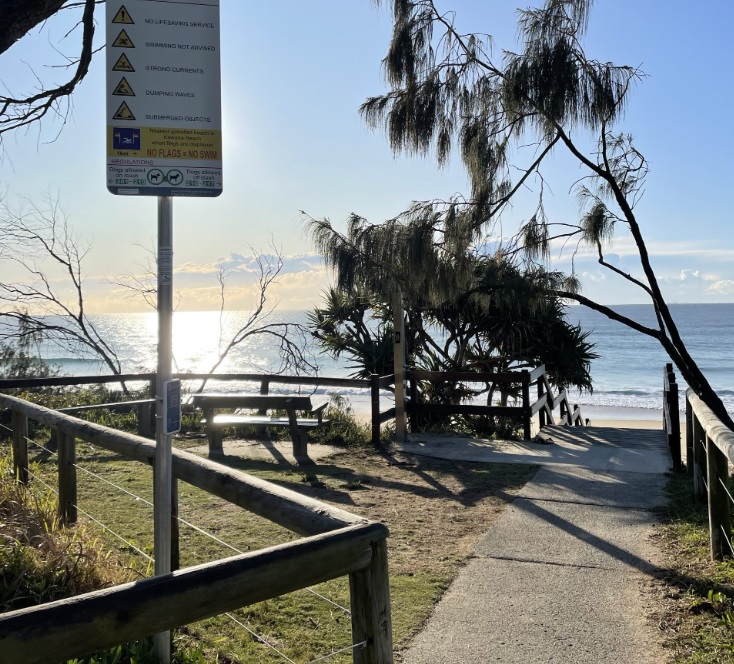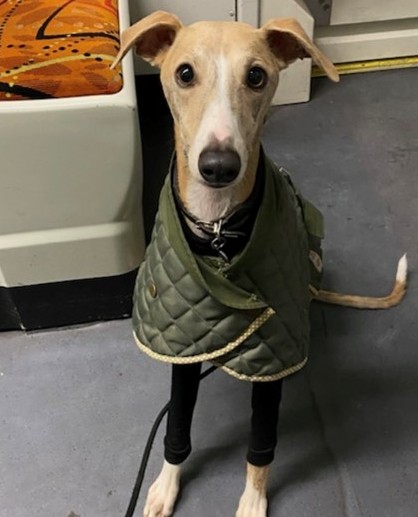RSPCA investigators are hopeful a grieving family’s kind offer will help to solve the mysterious cause of eight dog deaths on the Sunshine Coast.
The joint investigation by the RSPCA, police and Sunshine Coast Council began last August after owners were left heartbroken by a spate of suspected poisonings at a popular dog-walking area on the Coast.
Sunshine Coast RSPCA inspector Julia Steley said investigations into the August beach poisonings, in which five dogs died, did not reveal the cause of toxin nor identify any possible offender.
Related story: More suspected dog poisonings in popular area
Ms Steley confirmed that in the week before Christmas 2022, three more dogs were euthanised due to ingestion of an unknown toxin.

All three dogs were walked along the beach along the Point Cartwright stretch of coast at Buddina.
In all cases, it was noted the animals had similar symptoms, which included acute vomiting, inappetence and lethargy. They had also been walked within the previous 12 hours around Buddina, Minyama, Point Cartwright and La Balsa Park.
So far, Ms Steley confirmed there had been no further reports of dogs dying or requiring veterinary treatment after visiting the beach area.
Related story: RSPCA narrows down cause of deadly dog poisonings
The investigation is attempting to locate the cause of the poisoning and determine if the origin was intentional, accidental or environmental, but investigators are still stumped.
But Ms Steley revealed how a family’s kind offer might help them discover what the mystery toxin causing the suspected poisonings is.
One of the three dogs who most recently lost his life was a four-year-old whippet named Marcel.

He was a loved family pet who was on holidays with his family from New South Wales. But soon after a walk along the Point Cartwright area, he displayed signs consistent with ingesting a toxin, including vomiting and lethargy.
Marcel was rushed to the local Battery Hill Vet Clinic but he did not make it to treatment and was pronounced dead on arrival at the vet.
Related story: Pet dogs dead, alarm raised after spate of ‘poisonings’
On the day after he died, Ms Steley said Marcel’s family kindly offered that he undergo a post-mortem, in the hope that an answer might be found to reveal the identity of the toxin.
“We then transported Marcel to UQ for this process to begin,” she said.
“Post-mortems do take time … and we will await the results.
“The timing of the first cases and awareness of the possible poisoning links meant post-mortems weren’t an option to pursue then.
“If an answer is to be found this way, it would have the possibility of saving other dogs’ lives due to the identification of toxins and subsequent warnings to dog owners in the area. This post-mortem process is lengthy and costly.”

RSPCA Queensland and Sunshine Coast Council are working together to finance the testing in the hope of providing the general public answers and to possibly save any further dogs from succumbing to the same fate.
Ms Steley said if Marcel’s post-mortem was able to provide answers to assist in identifying the origin of the toxin, RSPCA would make another public update.
Dog owners are still being urged to remain vigilant at all times.
“Make sure you are aware of the location of your dog at all times and that your dog isn’t given the opportunity to put anything in their mouths that you are unable to identify as safe,” Ms Steley said.
“If it is revealed that the poisonings are the result of a deliberate act by a person and not a natural occurrence, then the RSPCA will commit further resources in an attempt to identify the offender and hold them accountable for their actions.”
If you believe your dog may have ingested something toxic please report it to the RSPCA on 1300 ANIMAL or QPS.
Do you have an opinion to share? Submit a Letter to the Editor with your name and town/suburb at Sunshine Coast News via: news@sunshinecoastnews.com.au





